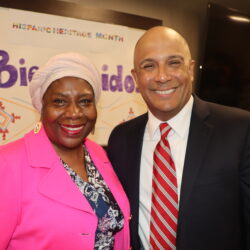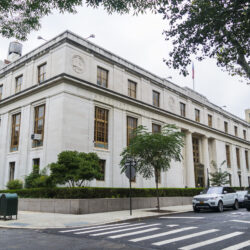
Hurricane Ida Recovery Aid is Too Little, Too Late, Victims Say
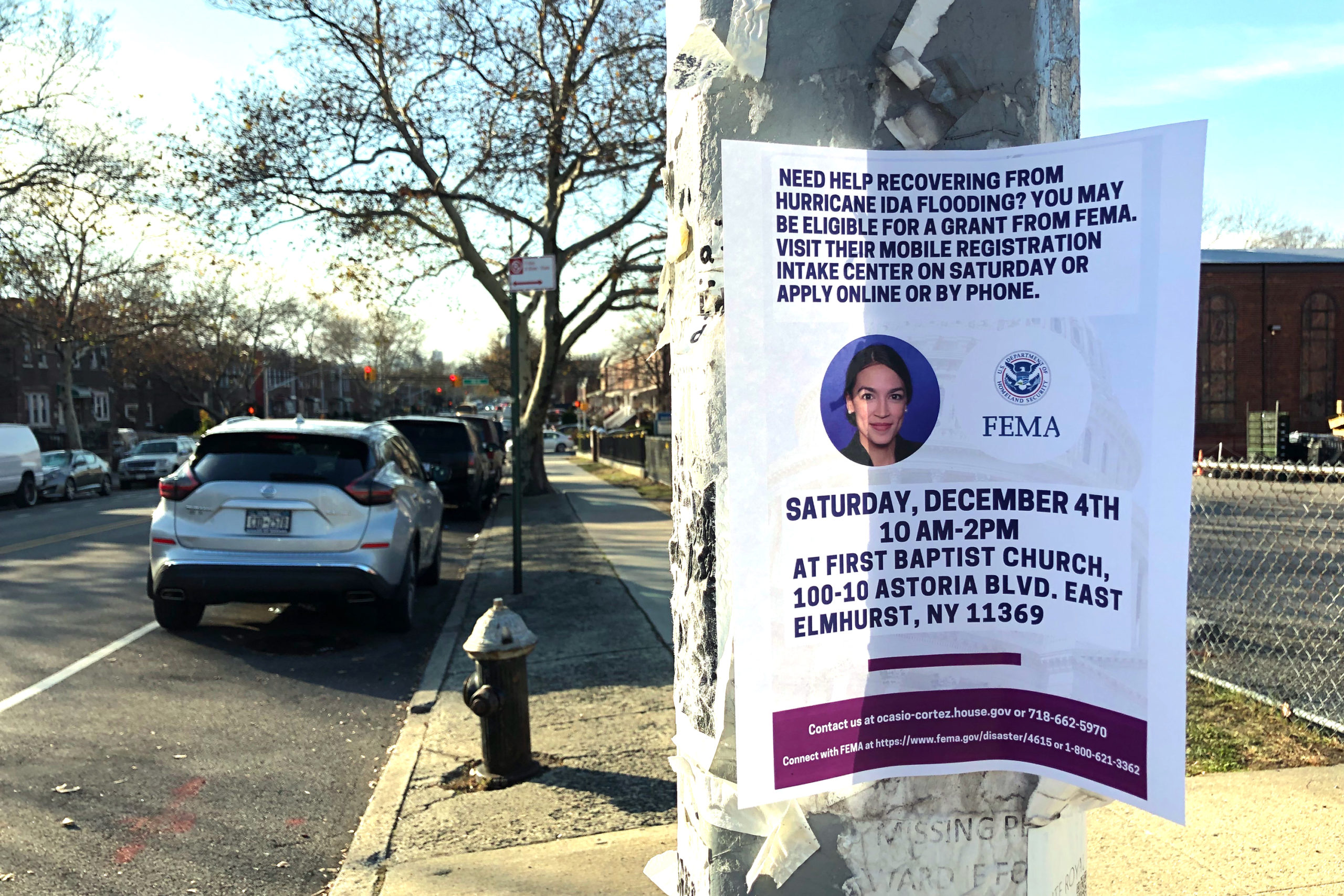
 This article was originally published on by THE CITY.
This article was originally published on by THE CITY.
Her home in low-lying Hollis flooded when remnants of Hurricane Ida pounded the city in early September. She counts herself as lucky that she received about $17,000 from FEMA — much more than most of her Queens neighbors.
Bhagwandin, 51, had several contractors come out to assess the damage, and none wanted to touch the severely compromised foundation. Instead, they advised her to fill the basement and lift the house, a project that would cost an estimated $300,000.
And that’s on top of what she’s already spent on repairs after repeated floods. She keeps a trove of manilla folders filled with photos of damage.
“I don’t understand what kind of life this is in New York City,” Bhagwandin said. “Do you know how scary it is? I run out of the house every time it rains. I cannot take a summer vacation because I have to stay and watch my house.”
Bhagwandin is one of many New Yorkers whose homes were damaged in the deadly Sept. 1 storm and who say they are still waiting for adequate assistance, more than three months later.
Renters and homeowners are facing different obstacles — and seek different types of relief. Bhagwandin wants the city to buy her home. Tenants, meanwhile, need their apartments renovated or a whole new place to live.
Yet storm victims on all sides say their ongoing shared experiences, including temporary displacement and long-term uncertainty, underscore a housing crisis exacerbated by climate change.
And despite recently extended state and federal timelines to apply for financial assistance, storm-slammed New Yorkers charge they’ve been largely forsaken.
“This is what’s very painful here, that we have to be chasing all these politicians to get this work done,” Bhagwandin said. “There’s no urgency.”
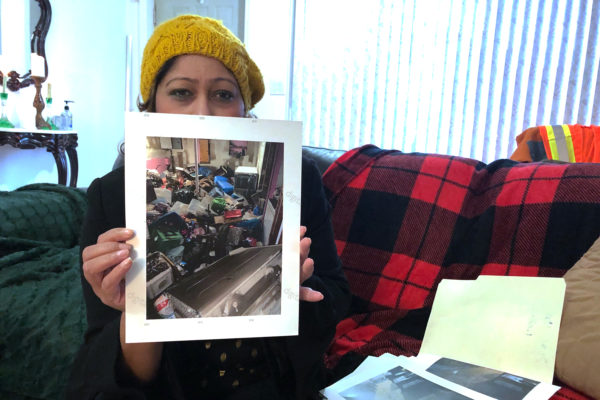
Photo by Samantha Maldonado/THE CITY
‘We Live Day to Day’
For renters, securing new housing in New York’s expensive market has been particularly difficult — especially in the wake of the storm, which killed 13 people, 11 of whom died in basement apartments.
Heidi Pashko and her husband have been living with their adult son and his two young children on Long Island ever since Ida hit. Their rented Forest Hills one-bedroom apartment — their home for more than 40 years — is still a wreck.
Pashko, 67, was used to paying “fabulous rent” for her spacious first-floor unit with high ceilings, but her hunt for furnished studios and one-bedrooms in Queens and Long Island has been discouraging. Nothing is as good as what she’d had — and everything costs at least double what she’d been paying.
“I feel bad sleeping on their couch, but I have nowhere to go,” Pashko said. “As long as my son will have me, I’m staying here. I’m with the grandkids every day, taking care of them.”
Pashko’s retirement from her job as a public school aide began the day of the storm, so money is tight. Before Ida, she’d just renovated the apartment and purchased a new stove and refrigerator.
“It’s hard,” she added. “I don’t know what my plans are. I don’t know what I’m doing. We live from day to day.”
Pashko said she and her husband received “a couple thousand dollars” from FEMA and are in the process of appealing to get more.
‘Emotionally, You’re Done’
As of Dec. 3, more than 88,700 people in New York City had applied for assistance from FEMA, with $163.7 million approved, according to Kevin Sur, an agency spokesperson. Sur declined to specify how many applicants were approved or denied funds.
Data FEMA provided to Reps. Alexandria Ocasio-Cortez (D-Queens, The Bronx) and Jamaal Bowman (D-The Bronx, Westchester) showed that about half of applicants in Queens and the Bronx received funding.
The two politicians sent a letter to FEMA late last month asking the agency to provide sufficient funds to help storm-battered New Yorkers “rebuild their homes and restore damaged property.”
Applicants can appeal FEMA’s decision within 60 days.
That’s what Tina Jimenez, 62 of East Elmhurst is doing. But it’s not easy.
“Emotionally, you’re done,” Jimenez said. “This added burden — you have to explain yourself and explain yourself and everybody’s giving you a different answer.”
FEMA gave her money for the costs of her boiler and water heater. Because she financed those repairs, Jimenez was able to use some of the federal funds to cover immediate expenses — “borrowing from Peter to pay Paul,” as she put it.
But she expects to be doing construction on her basement for the next few years to spread out the costs.
Days after the letter from Ocasio-Cortez and Bowman, FEMA extended the deadline to apply for financial assistance from Dec. 6 to Jan. 4.
That proved a relief for Randelle, a nurse who teaches at CUNY and didn’t want to give his last name.
The roof on his Bronx home sustained damage and his basement flooded. He’ll need to replace the roof and clean the basement to ensure there’s no black mold.
He showed up to FEMA’s mobile center in East Elmhurst on Saturday, hoping to get some help after his insurance company denied his claims.
“I just decided to try my luck,” he said, adding the representatives he spoke to were helpful and promised to send him more information so he could apply for funds to fix his Pelham Bay home.
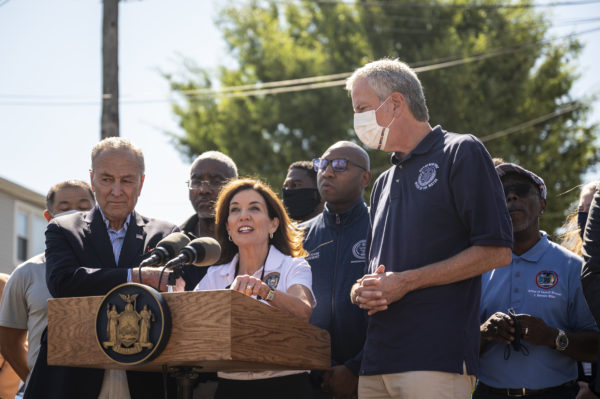
Photo by Hiram Alejandro Duran/THE CITY
‘It’s a Crisis’
On Sunday, Gov. Kathy Hochul extended the deadline by which people can apply to the $27 million Ida Relief Fund for undocumented New Yorkers excluded from FEMA assistance.
The new timeline will likely lead to more applications, according to Steve Mei, director of Brooklyn community services at the Chinese American Planning Council, one of six community-based organizations helping to administer the fund.
“Once people start receiving the relief money, that will encourage other folks to apply,” he said.
As of Monday, 432 households had applied to the fund, with 105 approved. The average payment is about $5,000, according Mercedes Padilla, a spokesperson for the state Office of New Americans.
Of the 105 applicants approved, 76 live in New York City. Just over $322,000 has been paid out.
“Folks have just lost everything essentially, and so this funding has been really essential to actually get them back on their feet, provide some basic assistance to help them meet their immediate needs,” said Becca Talzek, deputy director of Make the Road New York, a Brooklyn-based nonprofit that is also administering the fund.
But she noted that while some applicants were able to get enough funding to move out of their damaged apartments, others can’t if they don’t have enough money in hand. They are risking their health and safety as they wait for their landlords to make repairs to their homes, she added.
“Even though the grant is up to $72,000 per family, it’s really difficult to kind of get to that amount, because … most of the folks that qualify under this grant tend not to be homeowners,” Mei said.
He’s been referring people to the state’s Emergency Rental Assistance Program, but he believes increasing affordable and subsidized housing is key to help solve the problem.
Leave a Comment
Leave a Comment

